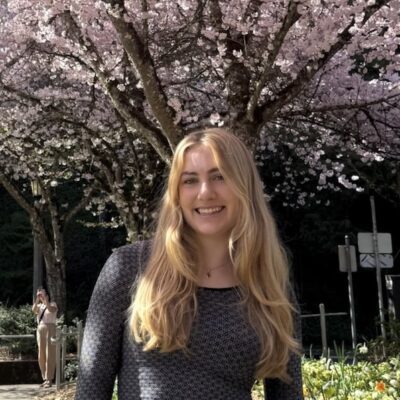Lauren Sandberg L&S Biological Sciences
Key Coral Symbiont Function in Sea Cucumber Feces
Reef-building corals rely on a partnership with microscopic algae called Symbiodiniaceae to form the basis of coral reefs, which provide benefits to both reef-dwelling organisms and human populations. Changing environmental conditions threaten coral reefs via coral-Symbiodiniaceae dysbiosis that can result in rapid and widespread coral mortality. While most research focuses on Symbiodiniaceae found in coral tissue, those in the environment may be key sources of Symbiodiniaceae after dysbiosis. This project explores whether sea cucumber feces, which contain material from reef sediments, may act as a source of Symbiodiniaceae with new functional traits. Since these algae are outside coral tissues, they may have increased opportunities to exchange genes and adapt to changing conditions. To test this, I will use RNA sequencing to see whether Symbiodiniaceae in sea cucumber guts show signs of sexual recombination, compared to those in coral and reef sediment. This research will provide critical insights into how sea cucumbers may facilitate the distribution of genetically diverse Symbiodiniaceae, which could facilitate adaptation and contribute to coral resilience in a changing ocean.
Message To Sponsor
Thank you so much for your generous support through the SURF fellowship. Your contribution is allowing me to pursue my passion for marine biology, particularly coral reef ecology. This opportunity is a meaningful step toward my goal of a research career centered on marine conservation. I’m truly grateful for your investment in my growth as a scientist.